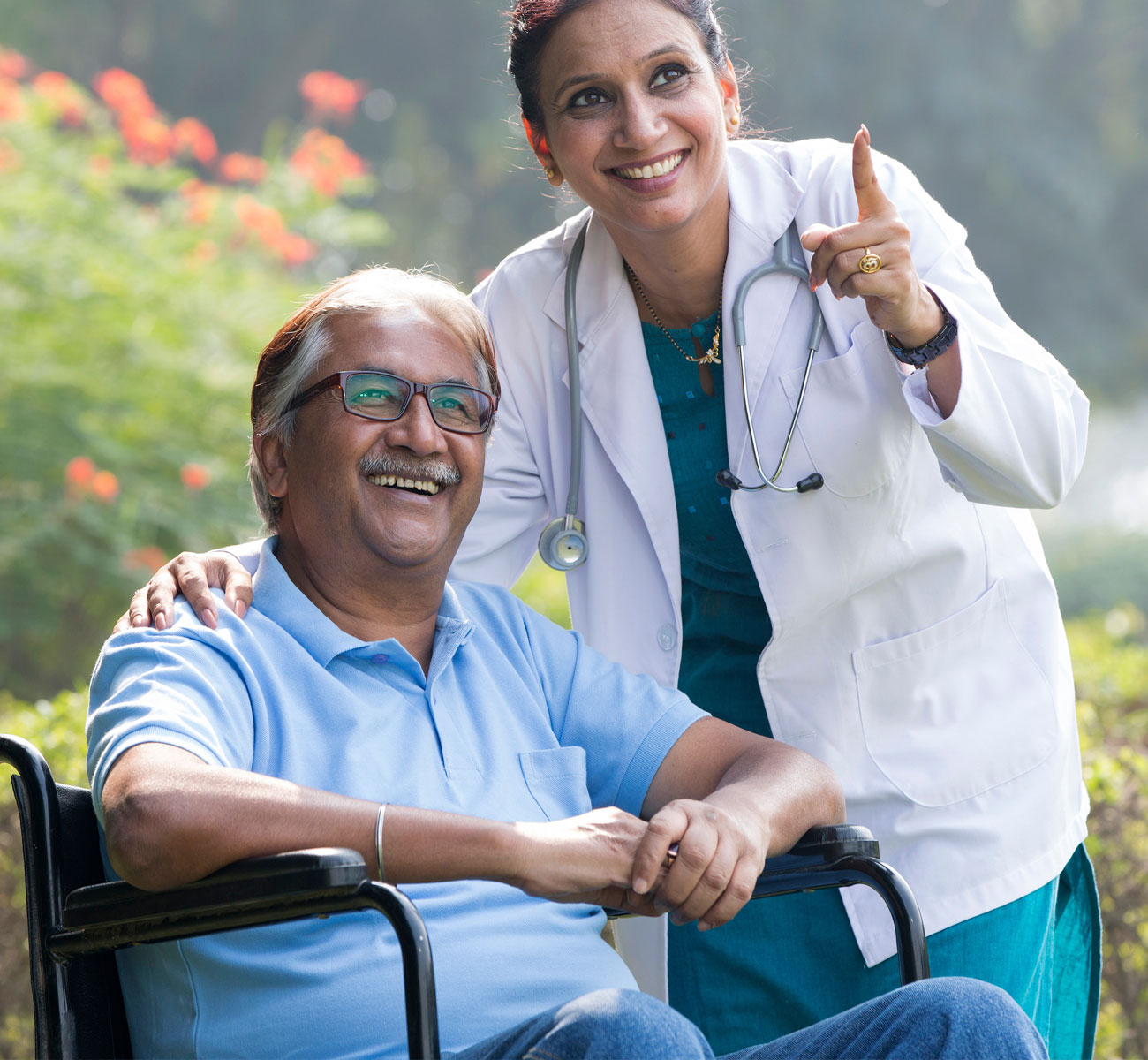
Technology is transforming elder care, offering innovative solutions that enhance safety, independence, and quality of life for seniors. From wearable health devices to smart home systems, technology plays a crucial role in addressing the challenges faced by aging individuals and their caregivers. Below, we explore how modern technology is reshaping elder care and its many benefits.
1. Wearable Health Devices
Wearable devices have become essential tools for monitoring senior health.
Key Features and Benefits:
- Health Monitoring: Devices like smartwatches track vital signs such as heart rate, blood pressure, and oxygen levels, providing real-time data for early detection of health issues.
- Fall Detection: Many wearables include fall detection sensors that automatically alert caregivers or emergency services if a fall occurs.
- Fitness Tracking: Encouraging physical activity by monitoring steps, calories burned, and other fitness goals.
Wearables empower seniors to take charge of their health while offering peace of mind to families.
2. Telemedicine Services
Telemedicine has revolutionized access to healthcare, especially for seniors with mobility issues or those living in remote areas.
Advantages:
- Virtual doctor appointments reduce the need for travel.
- Access to specialists without long waiting times.
- Remote monitoring allows doctors to track chronic conditions like diabetes or hypertension in real time.
Telemedicine not only saves time and resources but also ensures seniors receive consistent medical care.
3. Smart Home Technology
Smart home systems make living environments safer and more comfortable for seniors.
Applications:
- Voice-Activated Devices: Smart assistants like Alexa or Google Home can set medication reminders, control lights, or make calls.
- Motion Sensors: Detect unusual movements, such as a senior wandering at night, and alert caregivers.
- Smart Thermostats and Appliances: Ensure the home remains comfortable and energy-efficient while minimizing risks like leaving the oven on.
These technologies create an environment that supports aging in place with minimal risks.
4. Medication Management Tools
Managing medications can be challenging for seniors, especially those with multiple prescriptions. Technology offers practical solutions:
- Pill Dispensers: Automated pill dispensers release the correct dosage at the right time, reducing the risk of missed or incorrect medications.
- Medication Apps: Track schedules, send reminders, and notify caregivers if a dose is skipped.
These tools ensure adherence to prescribed treatments, improving overall health outcomes.
5. Remote Monitoring Systems
For families and caregivers, remote monitoring systems provide real-time updates on a senior’s well-being.
How They Work:
- Cameras and Sensors: Monitor daily activities and detect emergencies, such as falls or unusual inactivity.
- Health Data Sharing: Share vital signs and activity levels with family members or healthcare providers.
- Alerts: Notify caregivers of potential issues, such as leaving the front door open or wandering outside.
These systems help caregivers stay informed and responsive, even from a distance.
6. Assistive Devices for Mobility and Accessibility
Modern assistive technologies enhance mobility and accessibility for seniors.
Examples:
- Electric Wheelchairs and Scooters: Provide independence for seniors with limited mobility.
- Stairlifts and Elevators: Make multi-story homes accessible.
- Hearing Aids: Advanced digital hearing aids improve sound quality and allow for customization via apps.
These devices allow seniors to maintain their independence and navigate their environments more comfortably.
7. Social Connection Tools
Social isolation is a significant issue for seniors, but technology bridges the gap by keeping them connected with loved ones.
Popular Solutions:
- Video Calling Apps: Tools like Zoom or FaceTime enable face-to-face interaction with family and friends.
- Senior-Friendly Devices: Tablets and smartphones designed for older adults have simplified interfaces and larger text.
- Online Communities: Virtual groups and forums provide opportunities to meet new people and share interests.
Staying connected combats loneliness and promotes emotional well-being.
8. Cognitive Support Technologies
For seniors with cognitive impairments, technology offers support to improve memory and daily functioning.
Examples:
- Memory Aids: Digital calendars and reminders help seniors keep track of appointments and tasks.
- Brain Training Apps: Programs like Lumosity provide games designed to improve cognitive function.
- GPS Trackers: Help locate individuals who may wander due to conditions like dementia or Alzheimer’s.
These tools enhance the quality of life for seniors and reduce stress for caregivers.
9. Entertainment and Enrichment
Technology also provides endless opportunities for entertainment and lifelong learning:
- Streaming Services: Access to movies, music, and TV shows.
- E-Books and Audiobooks: Read or listen to favorite books with ease.
- Online Classes: Platforms like Coursera or YouTube offer courses and tutorials on various topics.
Engaging in activities helps seniors stay mentally active and fulfilled.
10. Challenges and Considerations
While technology offers numerous benefits, it’s important to address potential challenges:
- Digital Literacy: Some seniors may struggle to use new devices or apps. Providing training and ongoing support is essential.
- Cost: Advanced technologies can be expensive, though government programs or insurance may help cover some costs.
- Privacy Concerns: Remote monitoring and data-sharing tools must prioritize the privacy and consent of seniors.
By addressing these challenges, technology can be implemented effectively and ethically.
Conclusion
Technology has become an indispensable part of modern elder care in Chennai, providing solutions that enhance safety, independence, and quality of life. From wearable health devices to smart home systems, these innovations empower seniors to live comfortably and confidently while easing the burden on caregivers. As technology continues to evolve, its role in elder care will only grow, making life better for aging individuals and their families.





Leave a Reply